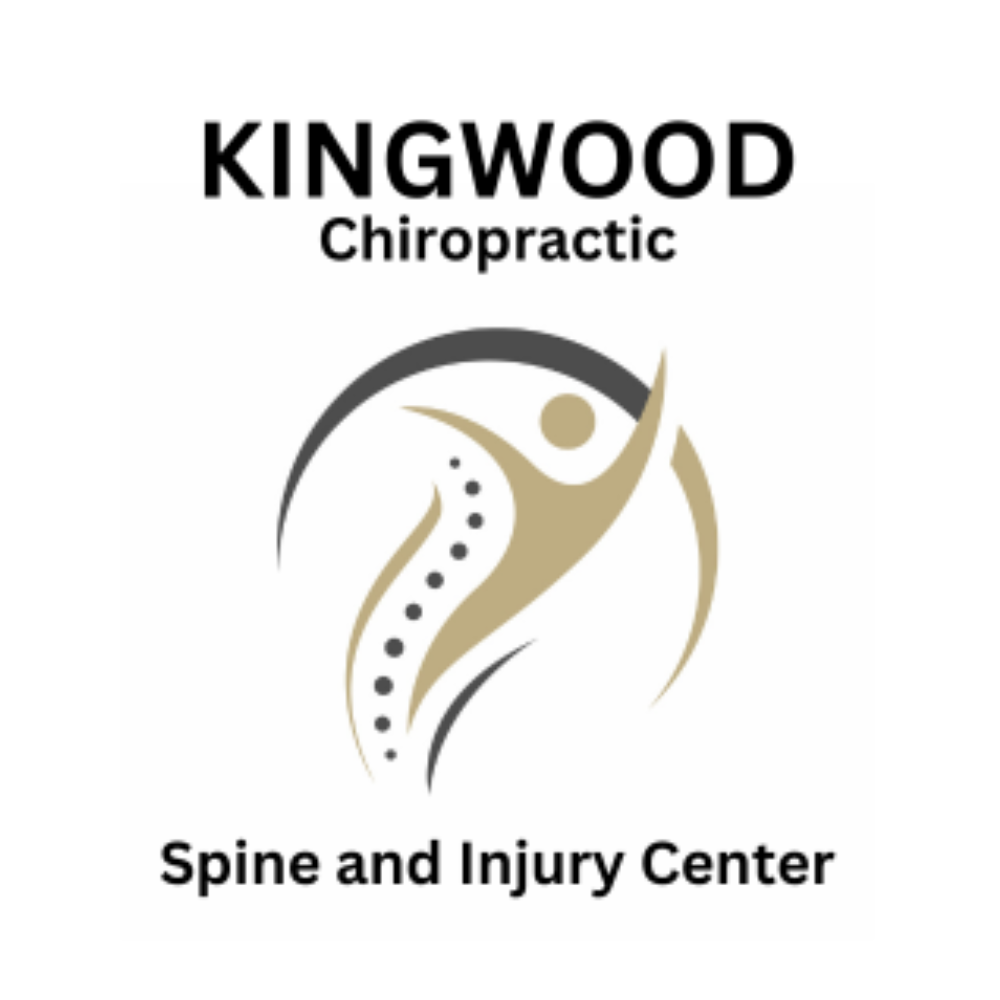.jpeg)
You didn’t expect it—the screech of brakes, the jolt of impact, and that strange stiffness settling into your neck hours later. What feels like “just soreness” could actually be a hidden whiplash injury. At Kingwood Chiropractic Spine and Injury Center, we’ve seen it time and time again—patients walk in days after a car accident thinking they’re fine, only to discover deeper spinal damage that’s quietly stealing their comfort, mobility, and peace of mind.
If you’ve been in an accident, no matter how small, your neck and spine have absorbed more force than you realize. The good news? With the right chiropractic care, you can heal naturally, avoid chronic pain, and get back to living life pain-free. Being in a car accident can lead to many injuries. You might feel minor aches or severe whiplash. Getting help from a professional right away can really help your recovery.

Quick Insights
- A whiplash injury often occurs during a sudden rear-end, side-impact or front-impact collision.
- Early chiropractic evaluation and a tailored chiropractic care plan can reduce the risk of long-term complications.
- At our Kingwood chiropractic office we combine adjustments, soft-tissue care, rehabilitation and advanced therapies to address neck, back and extremity trauma.
- Injuries from whiplash may not show immediate symptoms, delayed onset is common.
- Proper treatment after the car crash, even if you feel “ok”, protects your spine, nerves and long-term function.
Key Takeaways
- Whiplash can occur even in low-speed collisions and may not present immediate symptoms.
- Early chiropractic assessment and intervention can significantly improve outcomes and prevent chronic problems.
- Our Kingwood chiropractic clinic offers a comprehensive, integrated approach, adjustments, modalities, rehab, and insurance coordination, to assist your recovery.
- Documentation early after the crash is critical both medically and for insurance/attorney linkage.
- Proactive posture and ergonomic habits support healing and long-term spine health.
- Kingwood Chiropractic Spine and Injury Center has you covered and accepts most major auto insurance such as PIP, Uninsured Motorist and 3rd Party claims referred by local Houston personal injury attorneys.
Why It Matters
Whiplash is not just about pain today, it’s about the structural integrity of your neck, spine and nervous system tomorrow. Without proper care:
- You risk chronic neck pain, headaches, vertigo, TMJ issues and upper-back/spine degeneration.
- Compensatory motion draws in adjacent spinal segments, increasing wear-and-tear.
- Nerve irritation or disc involvement may lead to radiating arm pain, numbness or weakness if unchecked.
- Car-accident injuries may involve legal/insurance ramifications — missing documentation or delaying care weakens your position.
- By trusting your whiplash injury to specialized care from our Kingwood chiropractic practice, you give yourself the best chance to recover fully, resume your life and protect your spine for years to come.
- Of the 3 million people who are in car accidents every year, only half of them fully recover from their injuries, they are not getting the treatment they need, and sometimes they choose to get no treatment at all.
Introduction
If you’ve been involved in a car accident, whether a minor fender-bender or more serious crash, your neck and spine may have undergone forces beyond what you felt at the moment. This can lead to a condition commonly known as whiplash. As a chiropractor in Kingwood with over 25 years of experience, I’ve treated numerous patients whose whiplash injuries were not fully addressed, leading to persistent pain, headaches, dizziness or even long-term degeneration.
At Kingwood Chiropractic Spine and Injury Center, we focus on more than just relieving pain. We seek to restore alignment, mobility and neurological integrity so you can return to full activity with confidence. In this article we’ll explain what whiplash is, why prompt chiropractic care matters, how we treat it in our clinic, and what you can do to protect your recovery.
A patient's recovery and rehabilitation after a car wreck takes time and a commitment from the patient to do all they can to get better. An average, non-complicated whiplash injury can take 6-8 weeks of chiropractic treatment and physical therapy to heal and recover. A more complicated car crash injury involving disc herniations or concussion can take up to 6 months to recover.

What is Whiplash?
Whiplash is a term used to describe sudden acceleration-deceleration forces applied to the neck, typically in an auto collision that causes the head and cervical spine to move rapidly backward then forward (or sideways) beyond their normal range of motion. This can injure muscles, ligaments, discs, facet joints and even the nerves.
In many cases the seat belt or headrest may prevent fractures, but soft tissue, joint and nerve injuries still occur. Symptoms may begin right away, neck stiffness, soreness, headache, jaw pain, shoulder pain or upper back discomfort — or they may be delayed by 24-72 hours or longer. Many patients say they “feel fine” immediately after the crash, there is a risk of delaying care and allowing the injury process to become chronic.
Why Chiropractic Care Matters After a Whiplash Injury
Chiropractic care plays a key role in whiplash rehabilitation for several reasons:
- Identifying hidden trauma – A thorough exam (including orthopedic, neurological and spinal motion assessment) reveals subtle joint dysfunction, nerve irritation or ligament injury that may not show on standard imaging.
- Restoring spinal alignment and joint motion – Gentle, targeted adjustments of the cervical and upper thoracic spine help normalize biomechanics and reduce abnormal stress on injured tissues.
- Reducing muscle spasm and scar-tissue formation – Soft-tissue techniques, stretching protocols and rehabilitation exercises help prevent long-term stiffness, scar tissue and loss of range of motion.
- Protecting nerves and discs – When joint motion is restricted, discs may be overloaded and nerves irritated; early chiropractic intervention addresses these risks before degeneration begins.
- Integrating with other therapies – At our Kingwood clinic we may incorporate modalities such as cold laser therapy, shockwave therapy, or traction to accelerate healing of injured ligaments and soft tissues.
- Insurance and legal support relevant to auto collisions – Because many whiplash injuries stem from car accidents, our practice is experienced in working with PIP (Personal Injury Protection), UM (Uninsured Motorist) coverage and attorney-referrals to ensure your treatment is documented and coordinated correctly.
Delaying care or attempting to “ride out” your symptoms can allow the injury to become entrenched. Compensation of motion by adjacent segments, chronic muscle guarding, reduced blood supply and nerve irritation all contribute to persistent pain and dysfunction.
Our Treatment Approach at Kingwood Chiropractic
When you come to our clinic for a suspected whiplash injury, here’s what you can expect:
Initial Assessment:
- In-depth history: how the accident occurred, your symptoms, timeline, prior health issues.
- Physical exam: cervical spine motion, orthopedic and neurological tests, posture and muscle-tone evaluation.
- Imaging review: X-rays if indicated (to rule out fractures or gross instability); assessing joint alignment, spacing and curve of the neck.
- Establishing a baseline of pain, stiffness, function and movement.
Treatment Plan:
- Gentle chiropractic adjustment of the cervical spine and upper thoracic region — tailored to your specific injury pattern and sensitivity.
- Soft-tissue care: manual muscle release, instrument-assisted techniques, stretching to reduce tightness and prevent scar-tissue formation.
- Therapeutic modalities: depending on the case, we may use cold laser therapy or shockwave therapy to accelerate healing of injured soft tissues.
- Rehabilitation exercises: to restore strength, control and motor-coordination of the deep neck-stabilizing muscles. This supports long-term recovery and prevents recurrence.
- Postural and ergonomic advice: ensuring your driving posture, head restraint settings, workstation, sleep position and home-habits support healing.
- Progress tracking and adjustment: periodic reassessment ensures your spine is responding and we adapt the plan as you improve.
Why choosing our Kingwood location matters:
- Over 25 years of clinical experience and thousands of spine/accident-injury patients.
- A focus on car accident-related injuries including whiplash, with familiarity of PIP/UM billing and attorney coordination.
- State-of-the-art therapies combined with hands-on chiropractic care for a holistic approach.
- Patient-centered care in a comfortable setting, including appointment flexibility and direct communication (text/live-message support).
- Deep familiarity with local environments (Kingwood, Humble, Atascocita, north Houston) so we understand your traffic, commute, workspace and lifestyle demands.

What to Do After the Crash — Your Immediate Steps
- Seek medical attention within 24-48 hours even if you feel “fine” — this establishes documentation and begins proper healing.
- Take photographs of the vehicles, your injuries, neck/headrest settings and the accident scene if safe.
- Write down your symptoms and when they began, such as neck stiffness, headache, dizziness, fatigue, sleep disruption, upper-back pain.
- Avoid “waiting to see if it gets worse” — early intervention improves outcomes.
- Avoid self-diagnosis. Many patients with whiplash think they’ll “just tough it out,” but clinical evidence supports early care to reduce chronic issues.
Conclusion
Recovering from a car accident or whiplash injury isn’t just about easing the pain, it’s about restoring the health and stability of your spine so you can get back to living your life without limitations. At Kingwood Chiropractic Spine and Injury Center, we understand how quickly untreated whiplash can turn into chronic discomfort, headaches, and stiffness that interfere with your work, sleep, and daily activities.
With over two decades of experience, Dr. Tyler Hamel has helped countless Kingwood and north Houston residents heal from car accident injuries using natural, evidence-based chiropractic care. Whether you’re dealing with neck pain, headaches, or loss of mobility after a crash, our team will design a personalized treatment plan to help you recover safely and completely.
Don’t wait for symptoms to worsen—your spine deserves care today. Call 281-360-8387 or visit Kingwood Chiropractic Spine and Injury Center to schedule your complimentary car accident assessment. Let us help you feel better, move better, and live pain-free again.
FAQ
How long does recovery from a whiplash injury usually take?
Recovery varies based on severity, age, prior health and how soon treatment begins. Many patients recover within 6-12 weeks when treatment starts promptly, and they follow through with rehab. Others — especially those who delay care — may experience symptoms for months or longer, requiring ongoing management.
Can I drive after a whiplash injury and what precautions should I take?
Yes, in most cases you can drive, but you should avoid heavy traffic or long trips without breaks until you’re comfortable. Ensure your headrest is properly adjusted (middle of head, 2-3" behind) and avoid holding your head turned for long periods. Use your seatbelt correctly and incorporate short stretches if you’ll be driving longer than 30-40 minutes. Only talk on Bluetooth through your phone while driving.
Will standard X-rays always show whiplash injuries?
No, many whiplash injuries involve soft tissues (ligaments, facet joints, discs) and nerve irritation that won’t show on standard static X-rays. While X-rays are useful to rule out fractures or overt instability, a thorough clinical exam and sometimes advanced imaging (MRI, CT) or functional studies may be needed to fully assess your injury.
What happens if I just “wait it out” and don’t treat my whiplash right away?
Delaying treatment can lead to persistent muscle spasm, decreased joint motion, scar-tissue formation, early degeneration of cervical segments, chronic pain, headaches, dizziness, and even neurological symptoms like arm tingling or weakness. From a legal/insurance standpoint, delayed care can also complicate documentation and reduce compensation eligibility.
How does treatment differ if my whiplash injury is related to an auto accident?
When the injury is auto-accident related, we incorporate thorough documentation (timing, mechanism, symptom onset), coordinate with your PIP (Personal Injury Protection) or UM (Uninsured Motorist) coverage, and work alongside attorneys when needed. Our care plan may also include more frequent monitoring of recovery, specialized injury protocols, and communication with legal professionals to protect your rights while focusing on your healing.
